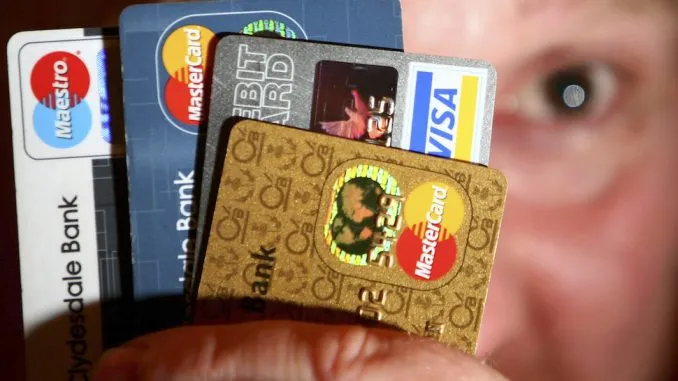Is it legal for a business in the United States to refuse cash as a form of payment?
Cash or card – will COVID-19 kill cash?
Britain To Begin Banning Cash In Favor Of Digital Currency
July 14, 2017 Sean Adl-Tabatabai News, UK 1 Comment

A credit card giant has vowed to completely eradicate cash in Britain by forcing shops and restaurants to only accept digital currency.
Visa says it wants merchants throughout the United Kingdom to begin rejecting notes and coins in order to make transactions “more secure.”
Daily Mail reports: Any switch from coins and notes to credit and debit card payments or services such as Apple Pay would also be of huge benefit to Visa, which makes money from transaction fees.
But consumer groups warned last night that it would put millions of elderly people and others who rely on cash and cheques at a huge disadvantage.
Tory MP Jacob Rees-Mogg said the firm should be referred to the competition authorities if it tried the move. ‘It is essentially the behaviour of a monopolist and I do not think it should happen,’ he said.
No cash till in bakery in Sweden.
Paying with Smart phone apps is booming in Sweden showing it being transferred from one phone to another relatively quickly. Most banks don't provide cash anymore saying it's to much trouble. It's as easy as a text message or email. Money has become digital information.
In Germany people are using more cards instead of cash due to thinking it's a safety net against catching covid-19. This couldn't be any more untrue than children should be vaccinated
Banker states cash doesn't spread the vrus as many have been led to think. " We know from research that bills and coins don't play any role in the spread of infections".
China’s shoppers are increasingly purchasing goods with just a turn of their heads as the country embraces facial payment technology.
In a country where mobile payment is already one of the most advanced in the world, customers can make a purchase simply by posing in front of point-of-sale (POS) machines equipped with cameras, after linking an image of their face to a digital payment system or bank account.
“I don’t even have to bring a mobile phone with me, I can go out and do shopping without taking anything,” says Bo Hu, chief information officer of Wedome bakery, which uses facial payment machines across hundreds of stores.
“This was not possible either at the earliest stage of mobile payment – only after the birth of facial recognition technology can we complete the payment without anything else,” he explains.
The software is already widely used, often to monitor citizens. But authorities have come under fire for using it to crack down and monitor dissent, particularly in the surveillance-heavy region of Xinjiang.
“There’s a big risk ... that the state could use this data for their own purposes, such as surveillance, monitoring, the tracking of political dissidents, social and information control, ethnic profiling, as in the case with Uighurs in Xinjiang, and even predictive policing,” says Adam Ni, China researcher at Macquarie University in Sydney........